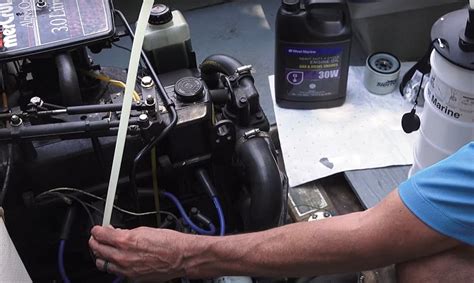How Often Should You Change Your Boat's Oil? A Comprehensive Guide
Maintaining your boat's engine is crucial for its longevity and performance. One of the most important maintenance tasks is changing the engine oil. But how often should you do it? The answer isn't a simple number; it depends on several factors, and neglecting this crucial step can lead to costly repairs down the line. This guide will explore the variables influencing oil change frequency and provide a comprehensive understanding of best practices.
What Factors Influence Boat Oil Change Frequency?
Several factors determine how often you should change your boat's oil. Ignoring these can lead to premature engine wear and potential breakdowns.
-
Engine Hours: This is the most critical factor. Unlike cars that track mileage, boats use "engine hours" – the actual time the engine runs. The more hours your engine runs, the more it wears down, requiring more frequent oil changes. Manufacturers typically recommend a specific interval in hours, often found in your owner's manual.
-
Type of Engine: Different engine types have varying oil change recommendations. Outboard engines, inboard engines, and sterndrive engines each have their own specific needs. Always consult your owner's manual for the recommended interval for your specific engine model.
-
Operating Conditions: Harsh operating conditions, such as running at high speeds for extended periods, operating in saltwater, or frequently idling, put more stress on your engine and require more frequent oil changes. Saltwater, in particular, is corrosive and can contaminate your oil more quickly.
-
Oil Quality: Using high-quality marine-specific oil is essential. These oils are formulated to withstand the rigors of marine environments and typically offer better protection and longer life than standard automotive oils. However, even high-quality oil needs replacing according to the recommended schedule.
-
Oil Condition: Regularly checking the oil's condition is crucial. Look for discoloration, excessive foaming, or a gritty texture. These signs indicate the oil is degrading and needs changing, regardless of the hours logged. Dipstick checks should be a regular part of your pre-trip routine.
How Often Should You Change Your Boat's Oil Based on Engine Type?
While engine hours are paramount, the type of engine influences the frequency. General guidelines are offered below, but always prioritize your owner's manual recommendations:
-
Outboard Engines: Typically require an oil change every 50-100 engine hours or annually, whichever comes first. However, frequent use or harsh conditions might necessitate more frequent changes.
-
Inboard Engines: These often have longer intervals, sometimes ranging from 100 to 200 hours, but again, always consult your owner's manual and consider the operating conditions.
-
Sterndrive Engines: These engines fall somewhere between outboards and inboards in terms of oil change frequency. Consult your owner's manual for precise recommendations.
What Happens if You Don't Change Your Boat's Oil Regularly?
Neglecting oil changes can have severe consequences:
-
Increased Engine Wear: Contaminated or degraded oil fails to lubricate engine components effectively, leading to increased friction and wear, reducing engine lifespan.
-
Reduced Engine Performance: The engine may lose power, run rough, or even fail to start.
-
Costly Repairs: Ignoring oil changes can result in catastrophic engine failure, requiring expensive repairs or even complete engine replacement.
What are the Signs Your Boat Oil Needs Changing?
Besides the scheduled maintenance, watch for these signs:
-
Discolored Oil: Oil should be clear or slightly amber. Dark brown or black oil indicates contamination and needs changing.
-
Gritty Oil: Feeling gritty oil on your dipstick indicates significant wear within the engine and requires immediate attention.
-
Foaming Oil: Excessive foaming can indicate combustion gases entering the oil, signifying a potential problem.
-
Unusual Engine Noises: Loud knocking, clicking, or other unusual noises can be a symptom of insufficient lubrication.
Conclusion: Prioritize Preventative Maintenance
Regular oil changes are a simple yet critical step in maintaining your boat's engine. Always prioritize the recommendations in your owner's manual, taking into account factors like engine hours, engine type, and operating conditions. By following a proactive maintenance schedule, you'll prolong your engine's life, enhance its performance, and avoid costly repairs. Remember, a little preventative maintenance goes a long way in ensuring enjoyable and trouble-free boating experiences.

